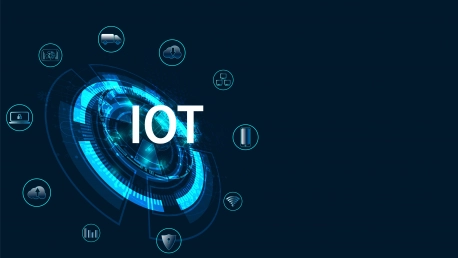The Internet of Things (IoT) is revolutionizing the healthcare sector by replacing outdated paper-based methods with advanced, interconnected systems. These technological advancements are enhancing patient care and making healthcare services more efficient. With IoT, devices in hospitals and clinics are now able to share and analyze information quickly, leading to better diagnostic capabilities and treatment options. Nonetheless, this digital transformation brings its own set of challenges. Ensuring devices and systems can communicate with each other (interoperability) and securing patient data against privacy breaches are paramount concerns that must be navigated carefully. As healthcare continues to adapt to IoT integration, the balance between innovation and safeguarding sensitive health information continues to be a critical point of focus.
The Surge in Digital Healthcare Applications
The digitalization of healthcare is making waves with applications that simplify and enhance traditional medical processes. Patients now find it easier to engage with healthcare services, benefiting from user-friendly digital platforms. These applications range from booking appointments online to accessing medical records at the tap of a screen, circumventing the rigmarole of phone calls and the hassle of paperwork. Digital solutions not only facilitate patient access but also allow healthcare professionals to concentrate more on patient care than administrative tasks, revolutionizing the overall healthcare experience.
Growth and Value of the Internet of Medical Things (IoMT)
The domain of IoMT is poised for significant expansion. Projections estimate not just an increase in IoT mobile connections but also a substantial surge in the market value of IoMT by 2028. This burgeoning sector encompasses a wide array of devices, from wearable health monitors to connected inhalers, all designed to collect, analyze, and transmit health data. With the interconnectivity of medical devices and systems through IoT, there arises a new paradigm of healthcare—one that is predictive, preventative, and highly personalized.
The Integration of Electronic Health Records (EHRs)
A significant step towards a seamless digital healthcare system is the integration of Electronic Health Records (EHRs). This movement aims to consolidate various patient data platforms into a singular, accessible, and efficient system. Integrated EHRs stand to streamline treatment processes by offering healthcare providers a complete view of patient history, enabling informed decisions, reducing duplication of tests, and curbing medical errors.
Home Healthcare Transformation via IoT
IoT is reimagining home healthcare by equipping patients with tools to manage their health in the comfort of their own homes. Smart medication dispensers, for instance, are revolutionizing patient adherence to treatments, as they can remind, dispense, and even alert providers if patients miss a dose. This shift in care delivery is not just about convenience; it’s about fostering independence among patients and minimizing the strain on traditional healthcare settings.
IoT Devices Extending Care Beyond Clinical Settings
The rise of home monitoring systems and Remote Patient Monitoring (RPM) stands as testimony to IoT’s role in transcending physical healthcare boundaries. By collecting and transmitting patient data remotely, RPM devices allow medical professionals to monitor patient health outside traditional clinical settings. This innovation is especially advantageous for chronic disease management and post-operative care, where ongoing monitoring is critical.
Consumer Wearables Entering the Medical Device Arena
Consumer wearables are not merely fitness trackers but are transitioning into the realm of medical devices. Products like the Apple Watch are increasingly being equipped with capabilities to monitor vital health indicators such as heart rate and blood oxygen levels. These advancements represent a significant foray into preventive healthcare, offering users valuable insights into their well-being and enabling early detection of potential health issues.
Corporate Involvement in IoT Healthcare Products
Major corporations are not standing by idly as the field of digital healthcare evolves. Companies like Microsoft and Apple are actively developing IoT healthcare products, engaging in research, and even acquiring innovative startups to bolster their standings in this sector. Their involvement is indicative of the potential they see in the convergence of technology and healthcare.
Startups Innovating in the Digital Health Sector
In the vanguard of the digital health transformation, startups burst onto the scene with innovative technologies and perspectives, from advanced analytics to cutting-edge medical devices and software. These new entrants share an ambition to disrupt the traditional healthcare paradigm.
The Interoperability Challenge
A critical issue facing digital healthcare is the interoperability of disparate healthcare systems. The ability of different systems to communicate and exchange data is crucial for the seamless operation of integrated healthcare delivery.
Privacy and Security Concerns in IoT Healthcare
As the Internet of Things (IoT) becomes more ingrained in healthcare, increasing concerns about the safety and confidentiality of personal health data are arising. To combat these fears, the healthcare sector is proactively striving to bolster cybersecurity defenses. This means implementing more sophisticated protections and adhering strictly to regulatory standards designed to safeguard patient information.Amid this technological revolution, it is critical to ensure that personal health information remains secure to preserve the trust patients place in modern healthcare systems. As the industry adapts, the commitment to privacy and security must remain steadfast, keeping patient well-being and confidence at the forefront.









